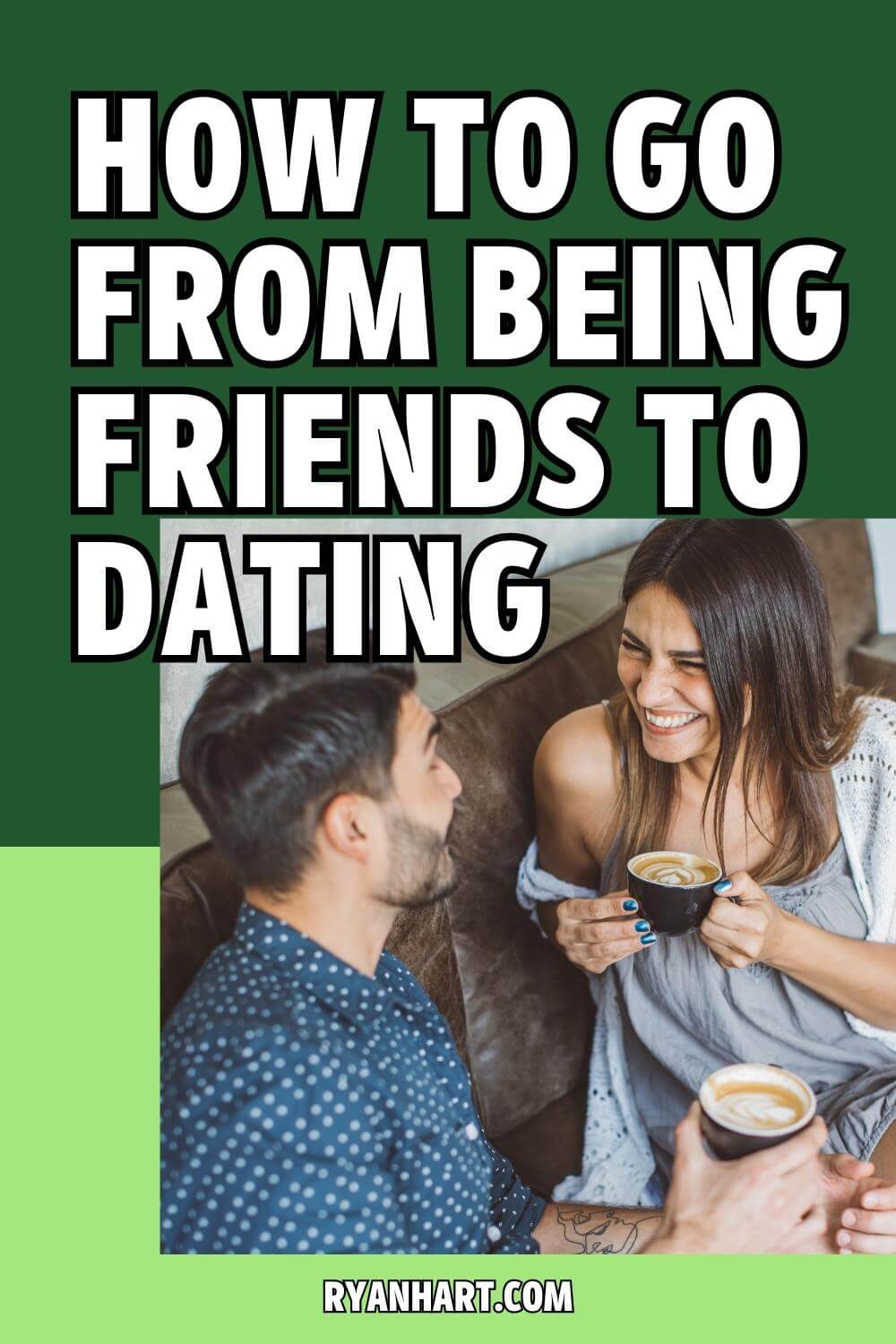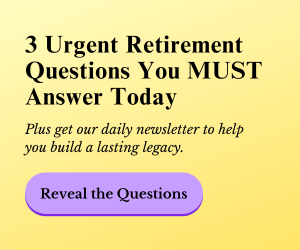How to Go from Being Friends to Dating
by Ryan Hart | Updated on May 24, 2024 | Post may contain affiliate links. As an Amazon Associate we earn from qualifying purchases.
Going from being friends to dating can be a tricky and delicate transition. It can be difficult to know whether your friend feels the same way as you do or if they’re even interested in pursuing a romantic relationship.
However, if you’re both willing to take the risk and communicate your feelings honestly, it’s possible to turn your friendship into something more.
Understanding your feelings is the first step in deciding whether you want to pursue a romantic relationship with your friend. Take some time to reflect on your emotions and think about what you’re looking for in a relationship.

Listen to Your Feelings
When transitioning from being friends to dating, it’s important to start by understanding your feelings. This means recognizing the crush, identifying the desire, and acknowledging the risk.
Recognizing the Crush
The first step in understanding your feelings is recognizing that you have a crush on your friend. This can be a confusing and overwhelming experience, but taking the time to process your emotions and figure out what you’re feeling is important.
Some signs that you might have a crush on your friend include:
- You find yourself thinking about them often
- You feel nervous or excited when you’re around them
- You get jealous when they talk about other people they’re interested in
- You feel a strong desire to spend more time with them
Identifying the Desire
Once you’ve recognized that you have a crush on your friends, it’s important to identify your desire for them.
Are you interested in a serious relationship, or are you just looking for something casual? Do you want to explore a romantic connection, or are you simply attracted to them physically?
Being honest with yourself about your desires can help you make a more informed decision about whether or not to pursue a romantic relationship with your friend.
Acknowledging the Risk
Finally, it’s important to acknowledge the risk involved in transitioning from friends to dating. This can be a difficult and sometimes painful process, and there’s always a chance that things won’t work out the way you hope they will.
Some potential risks to consider include:
- Losing the friendship if the relationship doesn’t work out
- Changing the dynamic of the friendship, even if the relationship is successful
- Facing judgment or criticism from others for dating a friend
It’s important to weigh these risks carefully before deciding to pursue a romantic relationship with your friend. While it can be a rewarding and fulfilling experience, it’s not something to take lightly.
Evaluating Your Friendship
Assessing your friendship with someone before deciding to take the next step towards dating is crucial. It helps you determine if you are both compatible and ready for a romantic relationship. Here are two key areas to consider when evaluating your friendship:
Assessing Compatibility
In order for any relationship to be successful, it must be compatible. Before you consider dating your friend, ask yourself if you are both compatible in terms of values, interests, and goals.
Do you share similar beliefs and values? Do you have common interests and hobbies? Are your long-term goals aligned?
If you have different beliefs and values or vastly different interests, it might be challenging to make a romantic relationship work. It’s important to be honest with yourself about your compatibility and whether it’s worth pursuing a romantic relationship.
Considering Friendship Strength
The strength of your friendship is another crucial factor to consider when evaluating whether to date your friend. Do you trust and respect each other? Have you been close friends for a long time? Do you have a strong emotional connection?
If you have a strong, trusting, and respectful friendship, it’s more likely that you’ll have a successful romantic relationship. However, if your friendship is weak or based on convenience, it might not be a good idea to pursue a romantic relationship.
Communicating Your Feelings
Starting the Conversation
Starting the conversation about transitioning from friends to dating can be nerve-wracking, but it’s important to be open and honest with your friend. Find a time when you both can talk without interruptions or distractions.
Let your friend know that you want to discuss your relationship and that it’s important to you. Be clear that you value the friendship, but you also have romantic feelings.
Expressing Your Emotions
When you express your emotions, be clear and concise. Use “I” statements to avoid sounding accusatory or confrontational. For example, say, “I have developed feelings for you” instead of “You make me feel this way.” Be prepared for any response, including rejection.
Remember that your friend may not feel the same way, and that’s okay. It’s important to respect their feelings and continue to value their friendship.
Here are some tips for expressing your emotions:
- Be honest and genuine
- Use clear and concise language
- Avoid blaming or accusing language
- Be prepared for any response
- Respect your friend’s feelings and decisions
Remember to listen to your friend’s perspective and be respectful of their feelings.
Navigating the Transition
So, you’ve decided to take the leap and transition from friends to dating. Congratulations! But how do you navigate this new territory without ruining your friendship? Here are a few tips:
From Hanging Out to Dating
The transition from hanging out as friends to going on dates can be tricky. It’s important to make your intentions clear from the beginning.
Start by asking your friend if they’d like to go on a date with you. Use the word “date” so there’s no confusion about your intentions. If they say no, don’t push it. Respect their decision and continue to be friends.
If they say yes, plan a fun date that’s different from your usual hangouts. Dress up a little, and make it clear that this is a romantic outing. Remember, you’re trying to show your friends that you’re interested in them in a different way than before.
Dealing with Awkwardness
It’s normal to feel a little awkward when you start dating a friend. After all, you’re used to seeing each other in a certain way. But don’t let the awkwardness get in the way of your relationship.
Talk openly with your friend about your feelings and concerns. Be honest about what you’re feeling, and listen to their perspective as well.
It’s also important to set boundaries early on. Discuss what’s okay and what’s not okay in your new relationship. For example, if you’re not ready to be physically intimate yet, make that clear. Respect each other’s boundaries and take things at a pace that’s comfortable for both of you.
Dealing with Potential Outcomes
When considering transitioning from friends to dating, preparing for potential outcomes is important. Here are some tips on how to handle different scenarios:
Staying Friends if Rejected
If you express your feelings to your friend and they do not reciprocate, it’s important to respect their decision and their feelings. It may be difficult, but it’s important to try to maintain the friendship if possible. Here are some tips on how to stay friends if rejected:
- Give yourself time and space to process your feelings. It’s okay to take a break from the friendship if you need to.
- Be honest with your friend about your feelings and your desire to maintain the friendship.
- Respect your friend’s boundaries and their decision not to pursue a romantic relationship.
- Focus on the positive aspects of the friendship and continue to engage in activities and conversations that you both enjoy.
Entering a Romantic Relationship
If your friend reciprocates your feelings and you decide to enter a romantic relationship, it’s important to communicate openly and honestly with each other. Here are some tips on how to navigate the transition from friends to a romantic relationship:
- Be clear about your expectations and boundaries in the relationship.
- Take things slow and enjoy the process of getting to know each other in a romantic context.
- Be prepared for the dynamic of the friendship to change as you navigate the new relationship.
- Remember to continue to communicate openly and honestly with each other, especially when it comes to any concerns or issues that arise.
The Friend Zone
It’s important to note that being in the “friend zone” is not a negative thing. It’s okay to value and appreciate a friendship without any romantic involvement. If you find yourself in the friend zone, here are some tips on how to navigate the situation:
- Respect your friend’s decision not to pursue a romantic relationship and focus on the positive aspects of the friendship.
- Consider taking a break from the friendship if you need time to process your feelings.
- Remember that it’s okay to value a friendship without any romantic involvement.
Breakups
If you decide to end the romantic relationship, it’s important to handle the breakup with care and respect for the friendship. Here are some tips on how to handle a breakup:
- Be honest and clear about your decision to end the relationship.
- Respect your friend’s feelings and give them space if needed.
- Be prepared for the dynamic of the friendship to change after the breakup.
- Be sure to communicate openly and honestly with each other, especially if there are any concerns or issues that arise after the breakup.
Building a Romantic Relationship
Navigating the Change in Dynamics
Transitioning from being friends to dating can be a significant change in dynamics, and it’s essential to understand this shift. While you may be comfortable with each other, some new expectations and boundaries come with a romantic relationship. Make sure to communicate openly and honestly with your partner to ensure that you’re on the same page.
One significant change in dynamics is the level of emotional intimacy. As friends, you may have shared personal stories and feelings, but as romantic partners, you’ll likely share even more. It’s important to be vulnerable and open with your partner but also to respect their boundaries and emotions.
Another change is the level of physical intimacy. While you may have hugged or cuddled as friends, there will likely be a new level of physical intimacy in a romantic relationship. It’s important to communicate your boundaries and comfort levels with your partner and to respect theirs.
Creating Intimacy and Passion
Building a romantic relationship requires effort and intentionality. One way to foster intimacy is to spend quality time together. Plan dates and activities that you both enjoy and make time for each other regularly. It’s also important to communicate regularly and to actively listen to your partner.
Another way to build intimacy is to show affection and appreciation. Small gestures like holding hands, kissing, or saying “I love you” can make a big difference in building a romantic connection. It’s also important to show appreciation for your partner’s qualities and actions that you admire.
To maintain passion in a romantic relationship, it’s important to keep things exciting and fresh. Plan surprises for your partner, try new things together and keep the spark alive. It’s also important to communicate your desires and fantasies with your partner and to explore each other’s interests.
Remember, building a romantic relationship takes time and effort, but it can be a rewarding and fulfilling experience. Keep communication open and honest, and don’t be afraid to seek guidance from a therapist or counselor if needed.
Maintaining the Relationship Long-Term
Congratulations, you have successfully transitioned from friends to dating! Now, the challenge is to maintain the relationship long-term. Here are some tips on how to do that.
Balancing Friendship and Romance
Long-term relationships require balancing the friendship and romantic elements of the relationship. While it’s important to continue being friends, it’s also essential to nurture the romantic aspect of the relationship. Make sure to set aside time for romantic dates and activities, and express your love and affection for each other regularly.
At the same time, it’s crucial to maintain the friendship aspect of the relationship. Continue to support each other, have fun together, and enjoy each other’s company. Remember what brought you together in the first place and continue to build on that foundation.
Handling Conflicts
Conflict is a natural part of any relationship, and no relationship is perfect. The key to handling conflicts in a relationship is to be honest and open with each other. Set clear boundaries and expectations, and be willing to compromise when necessary.
When conflicts arise, try to approach them as a team rather than adversaries. Work together to find a solution that works for both of you. Remember that conflicts can be an opportunity to strengthen your relationship if handled properly.
In addition, it’s important to be committed to the relationship long-term. This means being willing to work through the tough times and sticking together through thick and thin. Make sure to regularly reaffirm your commitment to each other and the relationship.
By balancing the friendship and romantic elements of the relationship, handling conflicts in a constructive way, and staying committed to each other, you can maintain a long-term relationship that is both fulfilling and rewarding.
Seeking Professional Advice
If you are feeling uncertain or overwhelmed about transitioning from friendship to dating, seeking professional advice can be a helpful option. Here are two possible routes you can take:
Consulting a Relationship Expert
A relationship expert can provide you with personalized guidance and support as you navigate this transition. They can help you identify any potential challenges or issues that may arise and offer strategies for addressing them. They can also help you clarify your goals and intentions for the relationship and ensure that both you and your friend are on the same page.
When choosing a relationship expert, look for someone who has expertise working with couples in similar situations. You may want to consider factors such as their credentials, approach, and availability. Some relationship experts offer in-person sessions, while others may offer online or phone consultations.
Seeking Therapy
If you are experiencing significant emotional distress or relationship challenges, seeking therapy may be a good option for you. A therapist can help you work through any underlying issues that may be impacting your ability to transition from friendship to dating. They can also help you develop healthy communication and boundary-setting skills, which can be crucial for a successful relationship.
When looking for a therapist, consider factors such as their specialty, approach, and availability. You may also want to consider whether you prefer in-person or online therapy sessions. Keep in mind that therapy can be a long-term process, and it may take time to see significant progress.

Bottom Line
In conclusion, going from being friends to dating can be a tricky and delicate process, but it is possible with the right mindset and approach. It’s important to be honest with yourself and your friend about your feelings and to communicate openly and respectfully throughout the transition.
Remember to take things slow and not rush the process. It’s important to build a strong foundation of trust and respect before diving into a romantic relationship.
Be patient and understanding, and don’t pressure your friend into anything they’re not comfortable with.
Frequently Asked Questions
How can a friendship progress into a romantic relationship?
A friendship can progress into a romantic relationship when both people have mutual feelings of attraction and interest. Communication is key in this process. It’s important to express your feelings and intentions clearly and honestly with your friend to avoid misunderstandings.
What are some signs that a friend may be interested in dating?
Some signs that a friend may be interested in dating include flirting, physical touch, and spending more time alone with you. They may also ask personal questions about your dating life or express jealousy when you talk about other potential romantic partners.
Is it better to be friends first before dating?
There is no right or wrong answer to this question, as it ultimately depends on the individuals involved. Being friends first can provide a strong foundation for a romantic relationship, as it allows for a deeper understanding and connection to develop. However, some people may prefer to jump straight into dating without the friendship aspect.
What are some tips for making the transition from friends to dating?
Some tips for making the transition from friends to dating include being clear about your intentions, taking things slow, and continuing to communicate openly and honestly. It’s also important to be aware that the dynamic of the relationship may change and to be prepared for that.
How long should you wait before taking a friendship to the next level?
There is no set timeline for when to take a friendship to the next level. It’s important to listen to your own feelings and the feelings of your friend to determine when the time is right. However, it’s important to make sure that both parties are on the same page and have a mutual understanding of the relationship.
Can a strong friendship turn into a successful romantic relationship?
Yes, a strong friendship can turn into a successful romantic relationship. In fact, having a strong foundation of friendship can often make for a more successful and fulfilling romantic relationship. However, it’s important to approach the transition with open communication and a willingness to adapt to the changes that may occur.

Ryan Hart is a licensed insurance agent, writer, and former home designer. He is on a mission to help couples protect their homes in retirement with life insurance and annuities.
Want to connect with Ryan? Click here to get his FREE retirement planning newsletter
